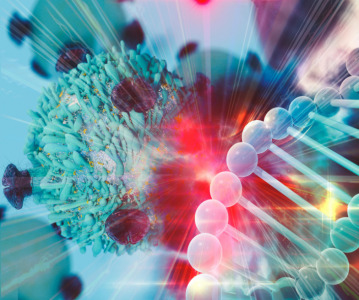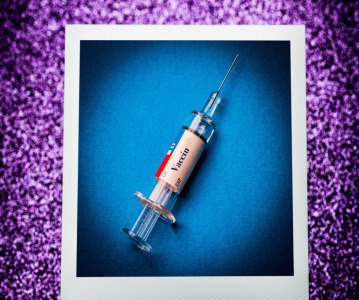BIA Separations introduces PrimaS multi-mode ligand bioprocessing technology

Novel platform initially focussed on high-resolution industrial-scale processing of therapeutic mRNA.
BIA Separations has launched its novel PrimaS ligand technology. The proprietary multi-use platform facilitates high-resolution and high-speed processing and addresses many underserved but critical separation problems in the context of fast-emerging advanced therapy medicinal products (ATMPs). The first application of PrimaS technology being made available is for mRNA purification.
As part of BIA Separations‘ CIMmultus range, PrimaS is a key addition to the company‘s mRNA purification toolbox, including Oligo dT-18, C4-HLD and SDVB chemistries. The platform harnesses mRNA capturing and polishing strategies, including dsRNA impurity removal and mRNA sizing options. All technologies are easily scalable from lab to manufacturing and can provide better product quality than traditional purification systems.
mRNA manufacturing involves several complex bioprocessing steps beginning with plasmid DNA production and its linearization, followed by in vitro transcription (IVT). Both operations include finely balanced enzymatic reactions, utilizing a number of key raw materials. For the standards required for clinical applications, ultra-pure mRNA is required, with critical contaminants eliminated, including dsRNA, template DNA and respective enzymes, in addition to potential impurities from raw materials such as chromatin-like structures and endotoxins.
Significant progress has been made by researchers worldwide to sharpen concepts that exploit mRNA-based therapeutics with, for example, many protein replacement, immuno-oncology and vaccine approaches, already progressing to early clinical stages. The COVID-19 pandemic exemplifies the need for these advancements, acting as a catalyst to now further accelerate such developments.
Related News
-
News Moderna to buy OriCiro Genomics in USD $85 million deal
Pharmaceutical company Moderna acquires genomics services company OriCiro Genomics, based in Tokyo, Japan, to boost mRNA therapeutics development and manufacturing portfolio. -
News New year, new prices: at least 350 drugs in USA to see price increases in January
Drugmakers such as Pfizer, GSK, BMS, AstraZeneca, and Sanofi are planning to raise prices for at least 350 unique drugs in the United States in early January. -
Sponsored Content 2023 Pharma Trend Outlook: Innovation, Resilience, and Pharma 4.0
Download our 2023 Pharma Trends Outlook report to discover the trends set to shape the pharmaceutical landscape in the new year, with expert opinions and insight from across the pharmaceutical value chain. -
News Strategic partnership between AstraZeneca and G42 Healthcare to increase pharmaceutical manufacturing in Abu Dhabi
A comprehensive, long-term partnership agreement between AstraZeneca and G42 Healthcare is set to enhance local drug manufacturing in Abu Dhabi, UAE, and bolster pharmaceutical manufacturing innovation within the country. -
News CordenPharma joins sustainability initiative to achieve Net Zero
The CDMO has joined the environmental initiative looking to align private sector companies with those aims upheld by the Paris Agreement to reduce global warming. -
News AstraZeneca acquires Neogene in shift into cell-based cancer therapies
AstraZeneca has recently announced that it will be acquiring the biotechnology company Neogene Therapeutics as part of it’s expansion into cell-based cancer treatments.
-
News A mRNA universal flu vaccine is in early stages of development
Researchers from the University of Pennsylvania have developed a universal flu vaccine using nanoparticle encapsulated mRNA. -
News Biovac partnership to increase African vaccine manufacturing capabilities
South African biopharma company Biovac signs a partnership deal with the International Vaccine Institute to develop and manufacture an oral cholera vaccine for both the African and global market.
Position your company at the heart of the global Pharma industry with a CPHI Online membership
-
Your products and solutions visible to thousands of visitors within the largest Pharma marketplace
-
Generate high-quality, engaged leads for your business, all year round
-
Promote your business as the industry’s thought-leader by hosting your reports, brochures and videos within your profile
-
Your company’s profile boosted at all participating CPHI events
-
An easy-to-use platform with a detailed dashboard showing your leads and performance
.png)


.png)



.png)